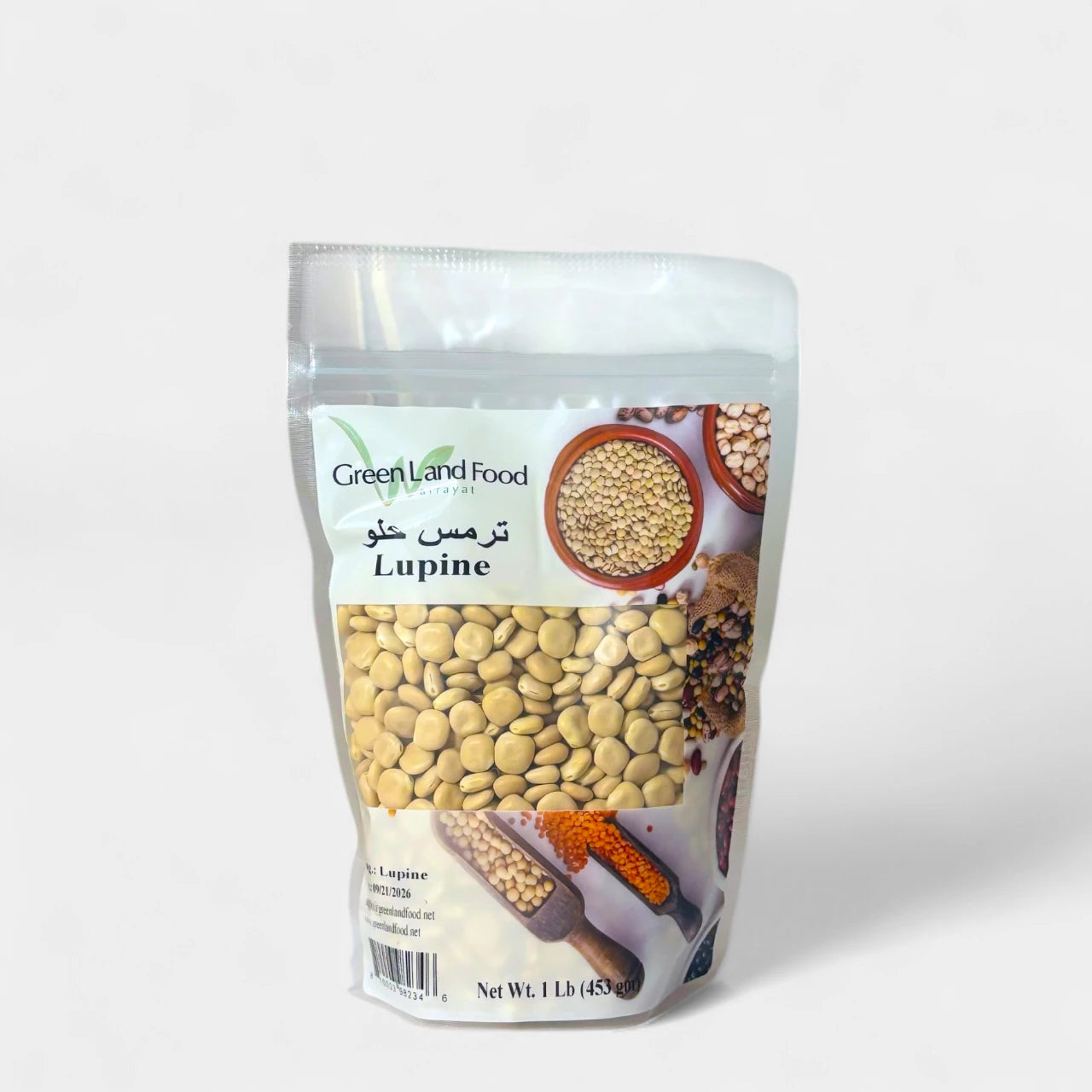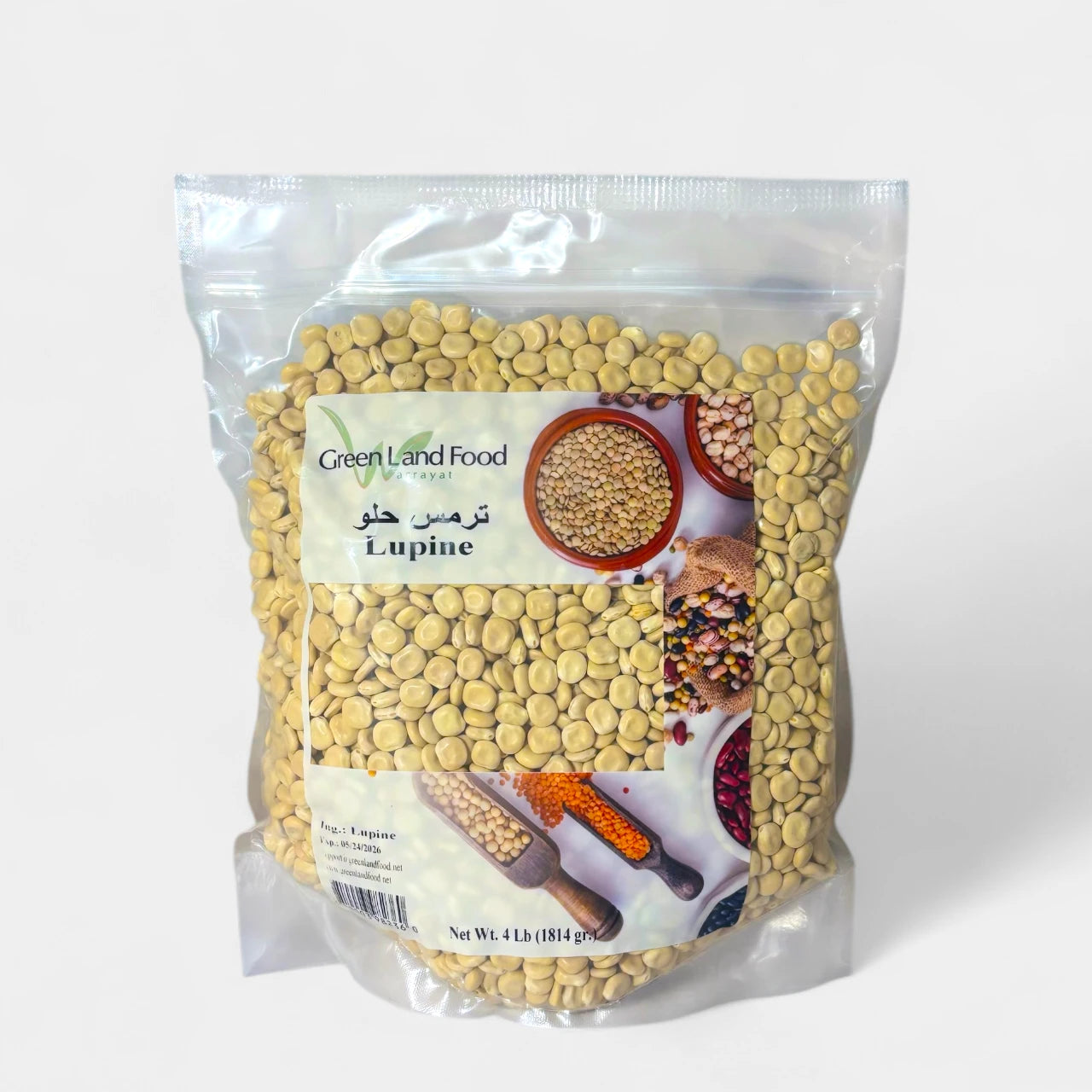Green Land Food, LLC
الترمس
الترمس
Couldn't load pickup availability
Product Overview: Lupines - 1 LB
Enjoy the distinct taste and rich nutritional benefits of Lupines. These Mediterranean legumes are known for their earthy flavor and crunchy texture. Often enjoyed as a snack or added to salads, soups, and stews, lupines are a versatile ingredient. Our 1 LB package ensures freshness and convenience, with 2 LB and 4 LB packages also available for larger needs.
Key Features
Premium Quality: Carefully selected lupines, dried and ready to use.
Versatile Use: Great for snacking, soups, stews, and salads.
Nutrient-Dense: Rich in protein, fiber, and essential minerals like iron and magnesium.
Healthy Snack: Low in fat, high in plant-based protein, and perfect for vegan and vegetarian diets.
Multiple Package Sizes: Available in 1 LB, 2 LB, and 4 LB packs.
Preparation Instructions
Soak: Soak the lupines overnight in water to rehydrate.
Cook: Boil them until tender.
Rinse & Brine: Rinse thoroughly and store in a salt brine if enjoying as a snack.
Optional: Add spices like cumin, chili, or thyme for extra flavor.
Serving Ideas
Snack: Brined lupines make a delicious, salty snack.
Salads: Add to Mediterranean salads for extra crunch.
Soups & Stews: Use them to enhance the texture and protein content.
Health Benefits
Lupines are packed with protein, dietary fiber, and antioxidants. They support digestion, promote heart health, and help maintain stable blood sugar levels.
Storage Instructions
Store dried lupines in a cool, dry place.
If cooked and brined, refrigerate in an airtight container.
Share
1. High quality Lupinis.
2. Healthy high in proteins.
3. Very good snack to entertain guests.
4. Low in calories.
5. High in minerals.
I think that after this review, Bassam is going to get some for himself.
Lupines
Lupines






